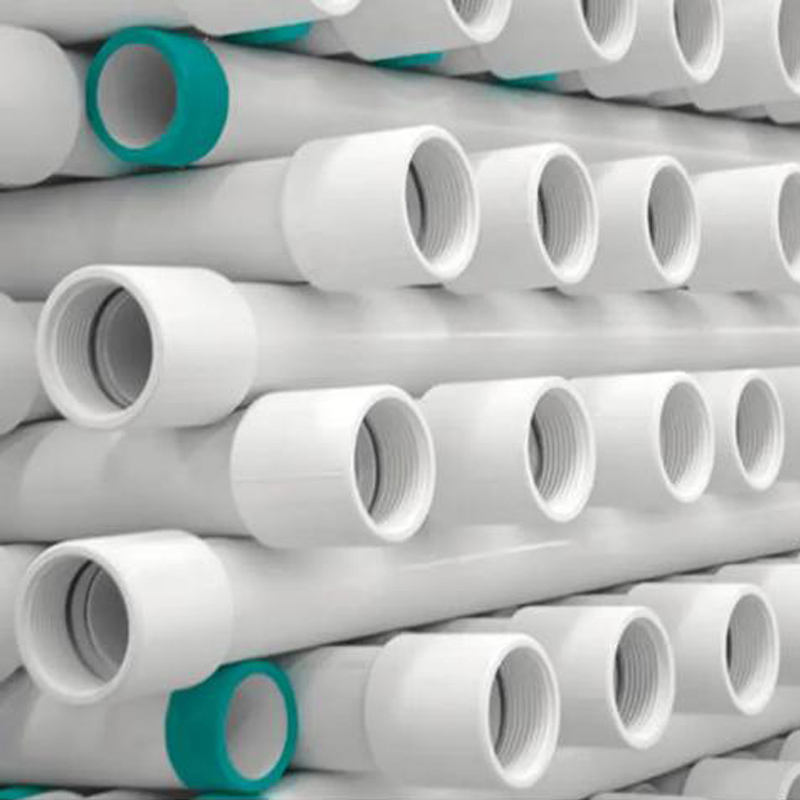Nov . 02, 2024 10:37 Back to list
what is pvc pipe used for in plumbing service
What is PVC Pipe Used For in Plumbing?
PVC, or polyvinyl chloride, is a widely used thermoplastic polymer that has become a staple in the plumbing industry. Its versatility, durability, and cost-effectiveness have made it a popular choice for various plumbing applications. This article explores the common uses of PVC pipes in plumbing and highlights the advantages that make them an essential component in modern plumbing systems.
1. Water Supply Lines
One of the primary uses of PVC pipes is in the distribution of potable water. PVC pipes are often used to connect the main water supply to various fixtures throughout a building, such as sinks, toilets, and showers. The material is resistant to corrosion and rust, ensuring that the water supply remains uncontaminated. Additionally, PVC pipes do not leach harmful chemicals into the water, making them a safe option for delivering drinking water.
PVC pipes are extensively utilized in drainage systems, including sewer lines and stormwater management. Their smooth interior walls allow for rapid flow of wastewater, reducing the risk of clogs and backups. PVC is also lightweight, making installation and handling easier than heavier materials like metal or concrete. Furthermore, the corrosion-resistant properties of PVC ensure longevity, even in challenging conditions such as high humidity or exposure to harsh chemicals.
3. Ventilation Systems
what is pvc pipe used for in plumbing service

In plumbing systems, proper ventilation is crucial to prevent vacuum formation and allow wastewater to flow smoothly. PVC pipes are commonly used for venting applications, allowing sewer gases to escape and maintaining pressure balance within the plumbing system. The lightweight nature of PVC also makes it easier to install venting systems on rooftops or through walls.
4. Irrigation and Landscaping
Beyond residential plumbing, PVC pipes are frequently used in irrigation systems for landscaping and agricultural applications. Their resistance to degradation from sunlight and moisture makes them suitable for carrying water to plants, gardens, and fields. Using PVC for irrigation ensures efficient water delivery, promoting healthier plant growth while conserving water resources.
5. Pool and Spa Systems
PVC pipes are also essential in maintaining swimming pools and spa systems. They are used in the circulation and filtration systems to transport water efficiently between various components, ensuring clean and clear water. The ability to withstand chlorine and other pool chemicals makes PVC a reliable choice for these systems.
Conclusion
PVC pipes play a vital role in modern plumbing systems, offering numerous applications from water supply lines to drainage and irrigation systems. Their durability, resistance to corrosion, and cost-effectiveness make them an ideal choice for both professional plumbers and DIY enthusiasts. With continuous advancements in material technology, PVC pipes will undoubtedly remain a key player in plumbing for years to come. Whether building a new home or upgrading an existing plumbing system, the advantages of PVC pipes can provide lasting benefits.
-
High-Quality PVC Borehole Pipes Durable & Versatile Pipe Solutions
NewsJul.08,2025
-
High-Quality PVC Perforated Pipes for Efficient Drainage Leading Manufacturers & Factories
NewsJul.08,2025
-
High-Quality PVC Borehole Pipes Durable Pipe Solutions by Leading Manufacturer
NewsJul.08,2025
-
High-Quality PVC Borehole Pipes Reliable PVC Pipe Manufacturer Solutions
NewsJul.07,2025
-
High-Quality UPVC Drain Pipes Durable HDPE & Drain Pipe Solutions
NewsJul.07,2025
-
High-Quality Conduit Pipes & HDPE Conduit Fittings Manufacturer Reliable Factory Supply
NewsJul.06,2025

